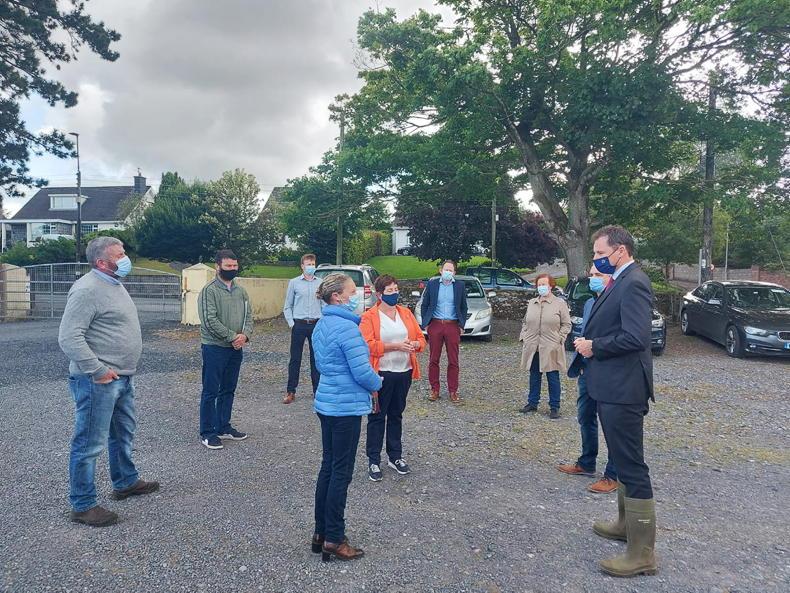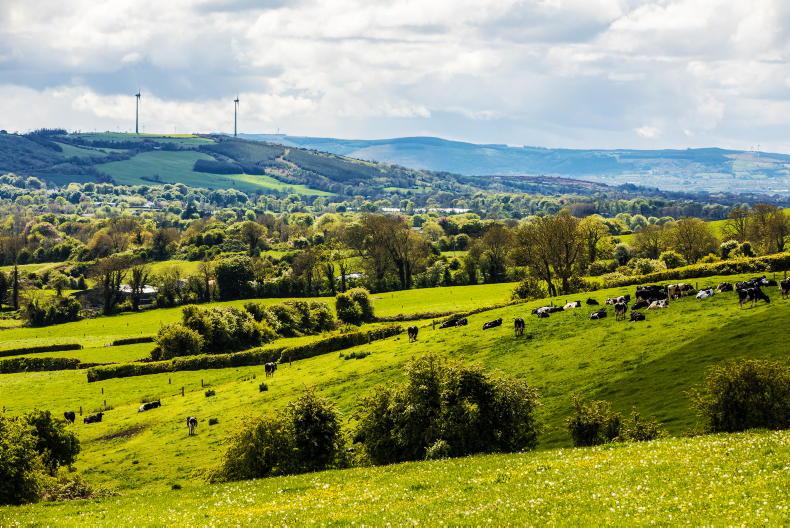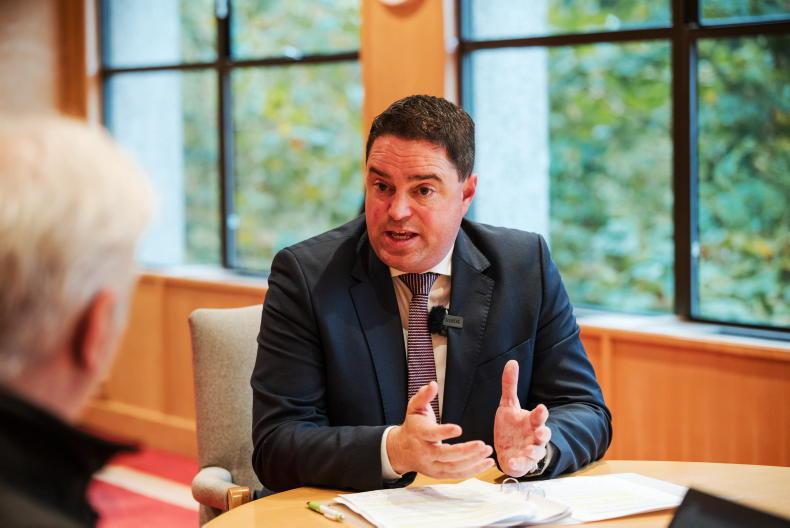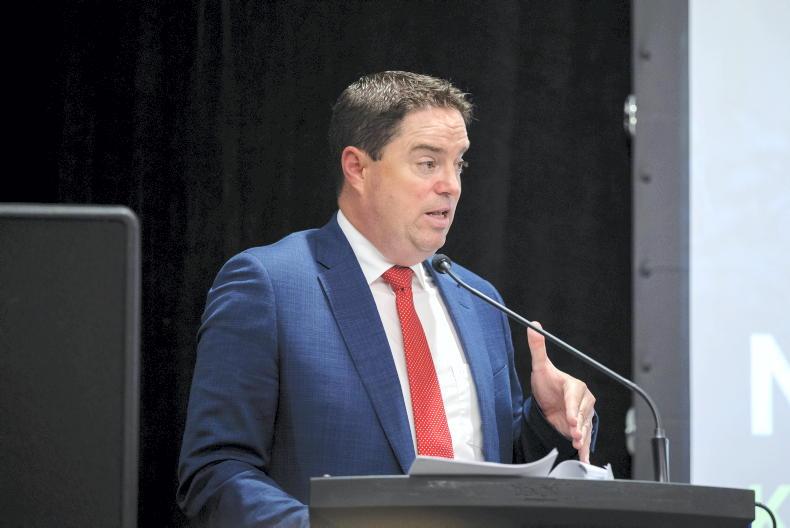Severe cuts to family farm incomes in Co Tipperary were highlighted to Minister for Agriculture Charlie McConalogue when he visited the Cork Marts' branch in Cahir, Co Tipperary, last week.
A visible and vocal delegation from the IFA’s two county committees pointed out how they would be personally affected and how the locality would suffer as a result.
Erica O’Keeffe, chair south Tipperary IFA, outlined her own income cut, saying: “My main point today was I took over the family farm in 2005 and my entitlements started off in €390/ha, and today I'm down to €264/ha. I'm full-time farmer, a sheep and suckler farmer, and that’s my income. How am I going to make my income from 2023?”
Eco schemes
Speaking to the Irish Farmers Journal O'Keeffe added: “Here in Tipperary in the last round [of payment convergence], we lost €13m. With eco scheme and all these new schemes, as I stressed to the Minister, I’ll lose my greening payment and how am I going to get that back?”
“Eco schemes – will I qualify? Will I be able to do these eco schemes? It’s a concern, I also stressed to the Minister that I applied to the REAP [Results Based Environment Agri Pilot Programme] scheme and didn’t get in. My way of farming is simple but yet I didn’t qualify so these schemes, we need to be able to qualify for them.”
Stark numbers
Pat Carroll, dairy chair for south Tipperary IFA also outlined some stark numbers.
“A lot of family firms here are going to take a serious cut in income. If we take the example of a cut of €5,000 a year on a family farm with no other income source, that’s the equivalent of €100 a week from their family farm income,” he said.
What does that family do to recover that €100?
“What we’re looking for is solutions. What does that family do to recover that €100? Where do they go for it, how do they go about getting it?
“The other side of it is, in area like this, in Cahir, the majority of jobs in the town of Cahir are linked back to agriculture, directly or indirectly, so any cut on the CAP payment will be felt not just by the family, but by all businesses all across the board in the area,” he warned.
Carroll added: “While we understand that there are a lot of farm families out there that need their payment to come up, we also have to highlight those families that are losing that payment. It’s not about big versus small, it's about family farm income.
“[The CAP] was put in place to subsidise cheap food so we need answers to those questions going forward, from the point of view that where a payment is lost, how are they going to retrieve that income? If they don't, they’re gone. It's quite simple. What family can afford to live on €100 a week less?
“The social issues [as a result of lost income] will be huge in this area here. So the Minister is here looking for opinions, I’d like to see him coming back five years down the line and see the consequence of the CAP and how drastic they will be,” said the dairy farmer.
Co-financing and derogation
Imelda Walsh, chair of north Tipperary IFA highlighted a number of issues with the Minister.
“The main one was in relation to co-financing, that we get maximum government co financing and in in relation to the carbon budget, the €1.5bn, it’s imperative that money is given back to farmers in a REPS-type [Rural Environment Protection Scheme] scheme,” Walsh said.
She also raised the importance of the nitrates derogation for local farmers.
“In a county like Tipperary a derogation is hugely important for our dairy farmers. It’s only since 2015 that the shackles of milk quota have been removed and now we’re getting more shackles put on us,” she said.
Farmers have been to the fore in making efforts for the environment, she pointed out, listing low emissions slurry spreading, high EBI herds, multispecies swards and protected urea as examples.
It’s only since 2015 that the shackles of milk quota have been removed and now we’re getting more shackles put on us
“It’s important that the Minister ensures that the derogation is protected when we consider the level of exports from Tipperary alone is €1bn. It underpins tens of thousands of jobs in the county, both directly and indirectly.
Walsh also pushed the minister for support for suckler farmers, the sheep welfare scheme and the tillage sector.










SHARING OPTIONS